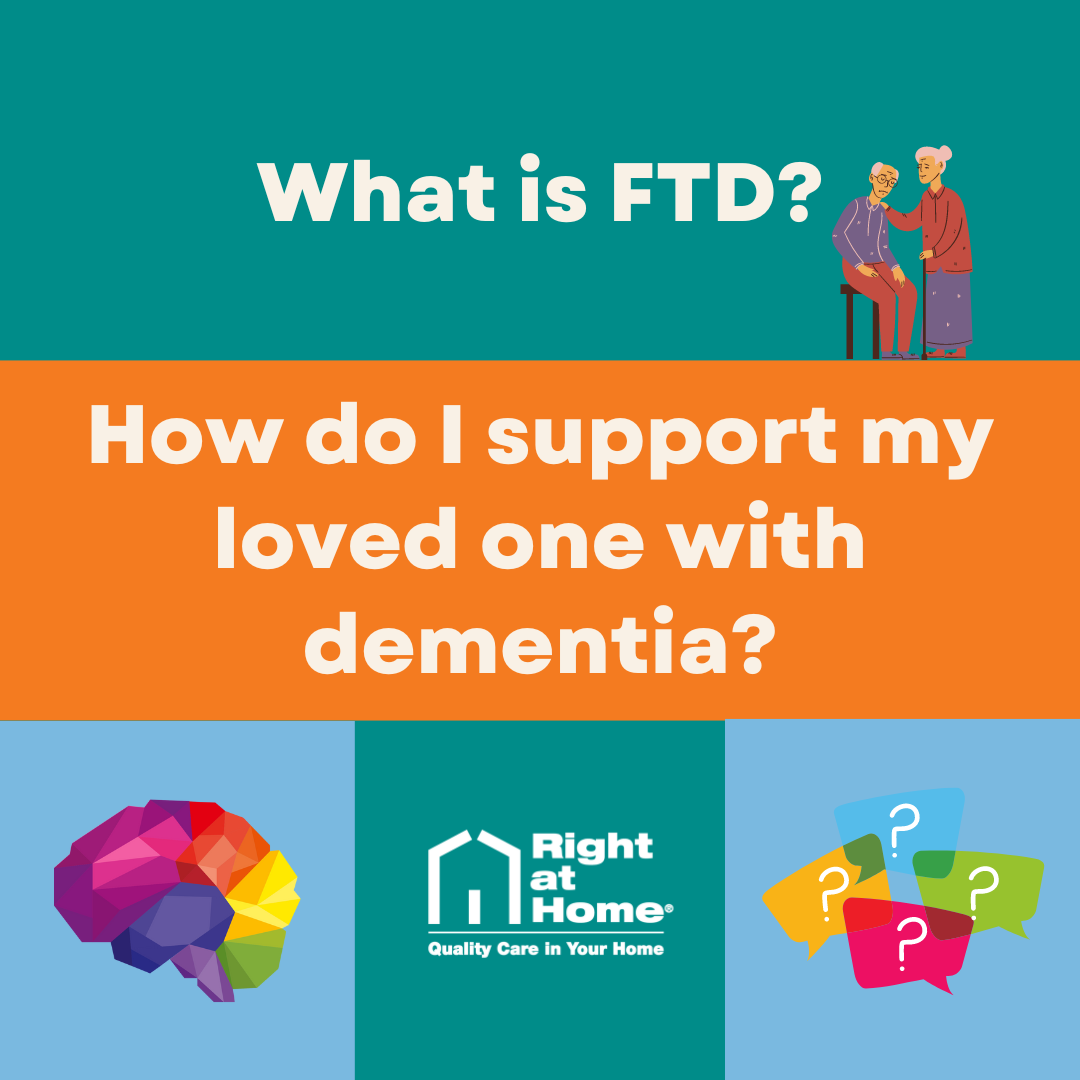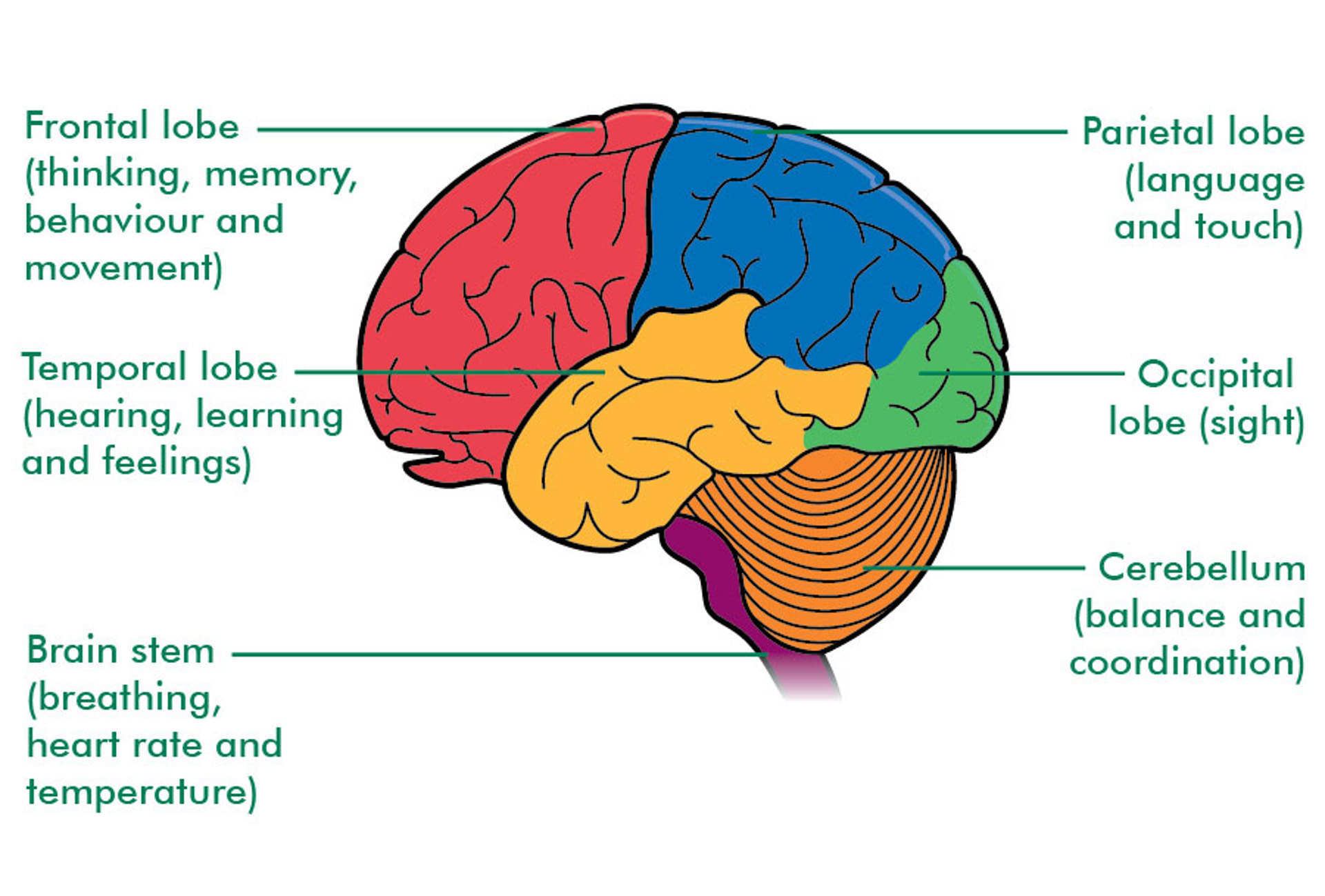FTD and Dementia Support

Published: 02/05/2023
As we have seen, Bruce Willis has been diagnosed with Frontotemporal Dementia at the age of 67, it has been said that this is a progression from his diagnosis last year of aphasia- when damage to the left of the brain causes a person difficulty with their language or speech.
Around 1 in 20 dementia diagnosis are cases of Frontotemporal Dementia (FTD), typically, dementia affects people over the age of 65, but with FTD, this tends to start at a younger age.

Frontotemporal dementia (FTD) causes problems with behaviour and language, this occurs when nerve cells in the frontal and temporal lobes (the front and sides) of the brain are lost through abnormal proteins forming inside the brain cells, this causes the lobes to shrink.
As a result, FTD can effect behaviour, personality, language and movement and in the space of 3 – 5 years it is likely the individual will need care whether its at home or in a nursing home. The average survival time after symptoms begin is 8 – 10 years whilst some people will live much longer than this.
Symptoms of frontotemporal dementia can make daily activities increasingly difficult, as outlined by the NHS symptoms can include:
- personality and behaviour changes
- language problems– speaking slowly, struggling to make the right sounds when saying a word, getting words in the wrong order, or using words incorrectly
- problems with mental abilities– getting distracted easily, struggling with planning and organisation
- memory problems– these only tend to occur later on, unlike more common forms of dementia, such as Alzheimer's disease
Supporting someone with dementia
There is currently no cure or ways to slow down frontotemporal dementia or other types of dementia, however there are ways to manage the symptoms.
Daily living-
As symptoms of dementia progress it can effect an individuals ability to remember things, concentrate and follow conversations, this can make them stressed, anxious and even scared at times. It is important to try and allow the person to do as much for themselves for as long as possible, this can be done by:
- Keeping a regular routine
- Having a weekly timetable or calendar to support schedules, activities and appointments
- Keep a list of emergency phone numbers in an obvious place, also consider replacing devices such as phones and remotes with larger button devices
- Use dementia friendly clocks- there are a variety of types, some can have medication reminders and show whether it is day or night
- If taking medication, a dosette box (pill organiser) is a useful tool. Or if needed, talk to your pharmacist about arranging blister packs with the weekly pills already organised
- Put regular bills on direct debit so payments are not missed
- Consider installing hand rails or using a shower chair in the bathroom, this will prevent slips and falls and make the individual feel safer
- Labels and signs are really helpful as the individual is then able to navigate around the house with gentle reminders of where everything is
- Colours are a useful tool to support someone with dementia, it is important to use bold and contrasting colours to help draw attention to certain items and prevent confusion. Avoid patterns and prints since they can be disorientating, so you may need to consider changing carpets/walls; it is hard to distinguish the pattern vs an actual object. Use particular colours to identify objects: RED- this can stimulate appetite, so try using a red plate, then use a red plate against a lighter table cloth as the contrast in colours will help the individual know where the rim of the plate it. LIGHT GREEN- this colour draws attention and signifies importance, so if you need to show where the ‘start’ button is on the microwave, or where the hearing aid box is, try using items of light green i.e. labels. BLUE- there are two functions of blue, light blue is calming and so creating a calming atmosphere can reduce anxiety and lower blood pressure; consider light blue bedding or even painting the walls light blue. Dark blue has shown to supress appetite by 28%, so it is important to remember to avoid this if trying to encourage someone to increase their intake, but can be useful if weight loss is required. When thinking about colours, the bathroom is often predominantly white, therefore it is difficult to distinguish objects i.e. steps into the shower, shower chairs and hand rails. It is useful to use coloured tape and items such as toilet seat covers to create a contrast and therefore help prevent confusion and even falls.
Stay socially active
Keeping in touch with friends and family and engaging in social activities is a good way to increase confidence and boost mental wellbeing. Spending quality time together can support relationships between the carer and the individual with dementia, this is especially important when the carer is a loved one.
There is an increasing number of Alzheimer’s and Dementia friendly cafes and tea clubs being created, they are not only a great way to allow those with dementia to feel welcomed and surrounded by like minded people but it is also a useful tool for support networks to receive advice, guidance and signposting.
Research carried out by Clarke et al, 2013 shows that meaningful activity and connection with the natural environment can have a positive effect on people with dementia; Dementia Adventure understand the positive effect being outdoors has on health and wellbeing and therefore offer small group holidays and individual breaks tailored to each individuals' needs.
Encourage and support physical health
It is important that physical health remains intact and looked after, this can be done by eating healthy and having a balanced diet. We all must drink plenty of fluids to prevent dehydration and UTI’s, but for people with dementia they often do not realise they are thirsty and so must be encouraged often to drink.
Other ways to promote physical health is through exercising/keeping active and mobile, utilising flu vaccinations, dentists, hearing and eyesight checks and get enough sleep of a good quality. The Alzheimer’s society have outlined some helpful ways in which you can support someone with dementia to wash, bathe and shower.
For those with long term conditions, ensure they maintain regular check-ups with the GP and reviewing medications, dementia can bring about a change in emotions and mood such as anxiety and depression, it helps to manage these symptoms with medications such as SSRI’s.

Use services available
There are many services available to support individuals with dementia and their carers and support networks, they are there to be used so don’t be afraid to contact them to see what they can do for you:
- Age UK – 0800 055 6112 (give advice, information and practical support such as befriending, help at home, activities etc.)
- Alzheimer’s Society – 0333 150 3456 (offer advice and where to receive support)
- Carers UK – 0808 808 7777 (advice for carers around finance, practical help and health and wellbeing)
- Consider calling your local homecare providers to see what services they provide, they are good sources of advice and signposting too
Speak to us!
If you or a loved one feel you might need dementia support at home, give us a call and our team will be happy to have chat and discuss home care options.
Further information about the support services we offer can be found here:
Dementia Care Services on the Isle of Wight | Right at Home
